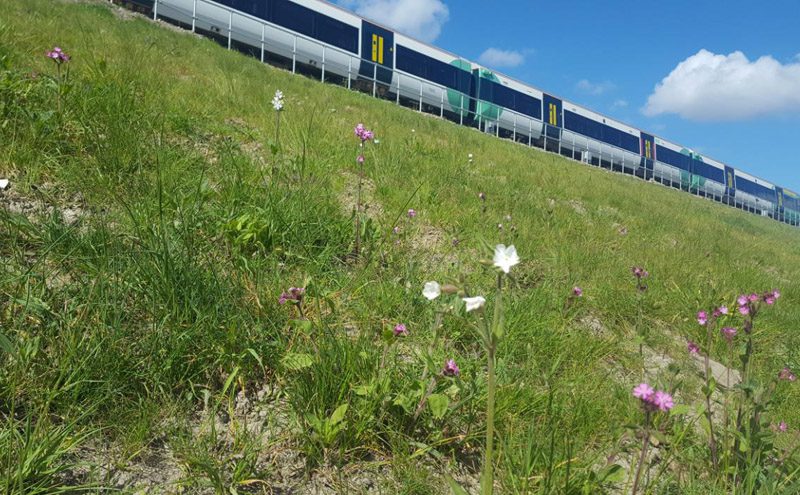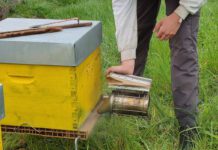
The construction of the Bermondsey Dive Under, a new railway junction to the east of London Bridge station, has increased biodiversity in the urban area of Bermondsey by 113%, winning the team a coveted CEEQUAL ‘Excellent’ award of 96.6%.
The Bermondsey Dive Under, part of the Thameslink Programme, is a joint project by Network Rail and partners Skanska and Ramboll to untangle the tracks approaching London Bridge station. Before it was built, train lines to Sussex and Kent criss-crossed over each other at a series of flat junctions, causing delays and limiting the number of trains that could travel per hour. The junction will allow designated lines for Southeastern trains to Kent and Southern trains to Sussex to ‘dive under’ new Thameslink lines from January 2018, reducing delays and increasing reliability for passengers.
The Thameslink Programme, part of Network Rail’s Railway Upgrade Plan, is committed to increasing net positive biodiversity on its projects. Prior to the beginning of construction in 2012, the Bermondsey site had limited botanical diversity and low conservation value; it was scattered with the previous tenant’s debris and the soil was heavily contaminated with asbestos, Japanese Knotweed and hydrocarbons.
The project removed over 21,900 tonnes of contaminated material and eradicated the Japanese Knotweed. To increase biodiversity, wildflower planting and green walls were installed to offset vegetation lost in the process of removing the contaminated soils. The project installed 765m2 of green walls under arches and access ramps and planted wildflowers on the railway embankments to create green corridors and stepping stones to the wider area, leaving a fantastic legacy both environmentally and aesthetically for the local community. The team also carried out extensive community engagement, including upgrading the garden in the Lewisham Community Centre, refurbishing a youth club in a local church and volunteering on the XLP youth charity bus.
Gerardo Austria, consents & sustainability manager, Network Rail, said: “On the Thameslink Programme, we continuously strive to improve upon sustainable excellence. The fantastic score of 96.6% is the result of our collaborative way of working to not only protect but enhance the environment and the community whilst delivering this complex project”.
Charl de Kock, project manager, Skanska, said: “It is great to receive such a high level of recognition from CEEQUAL for this complex and challenging project. We were able to achieve this excellent CEEQUAL score due to us embedding a sustainable approach from the design stage through to the delivery of the project. This success is testament to the commitment to sustainability from our client, Network Rail, our design partner, Ramboll, and all our other contracting partners and supply chain. I would like to thank everyone involved with delivering this very successful project.”







